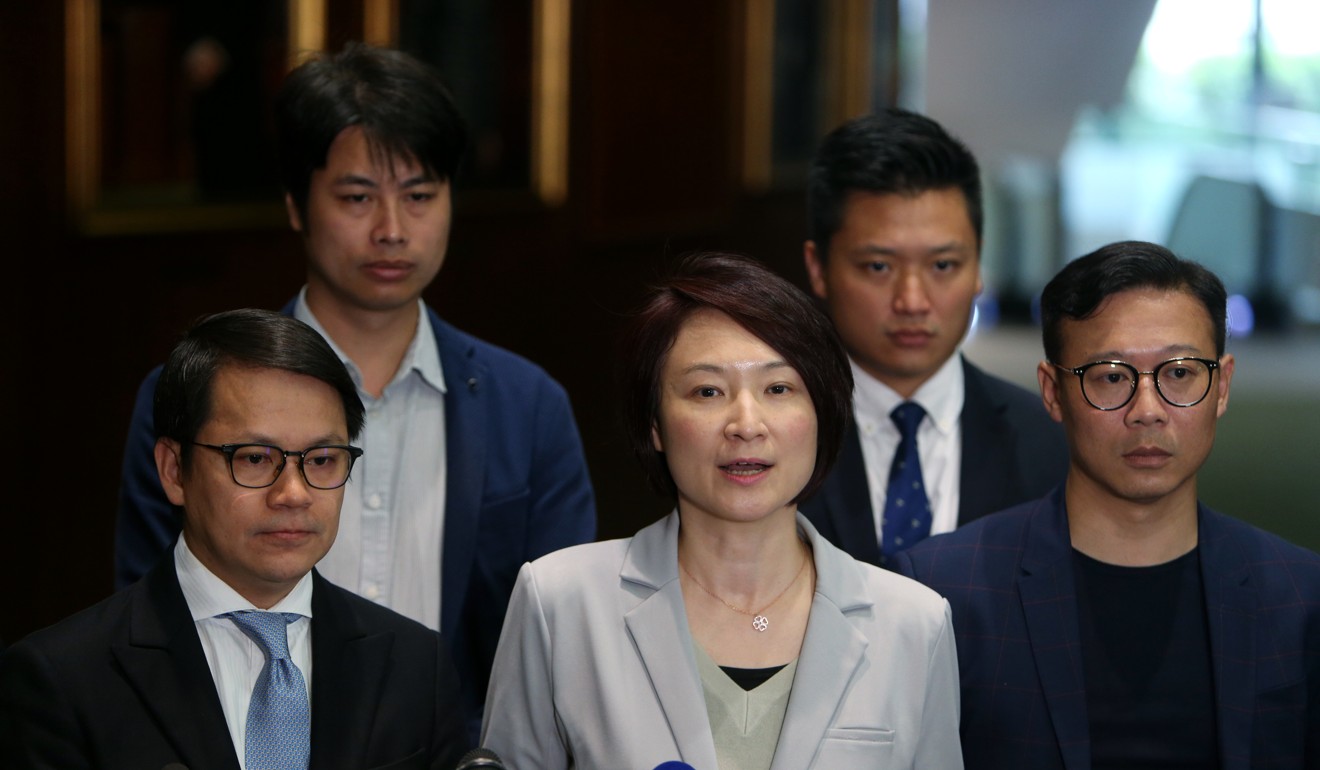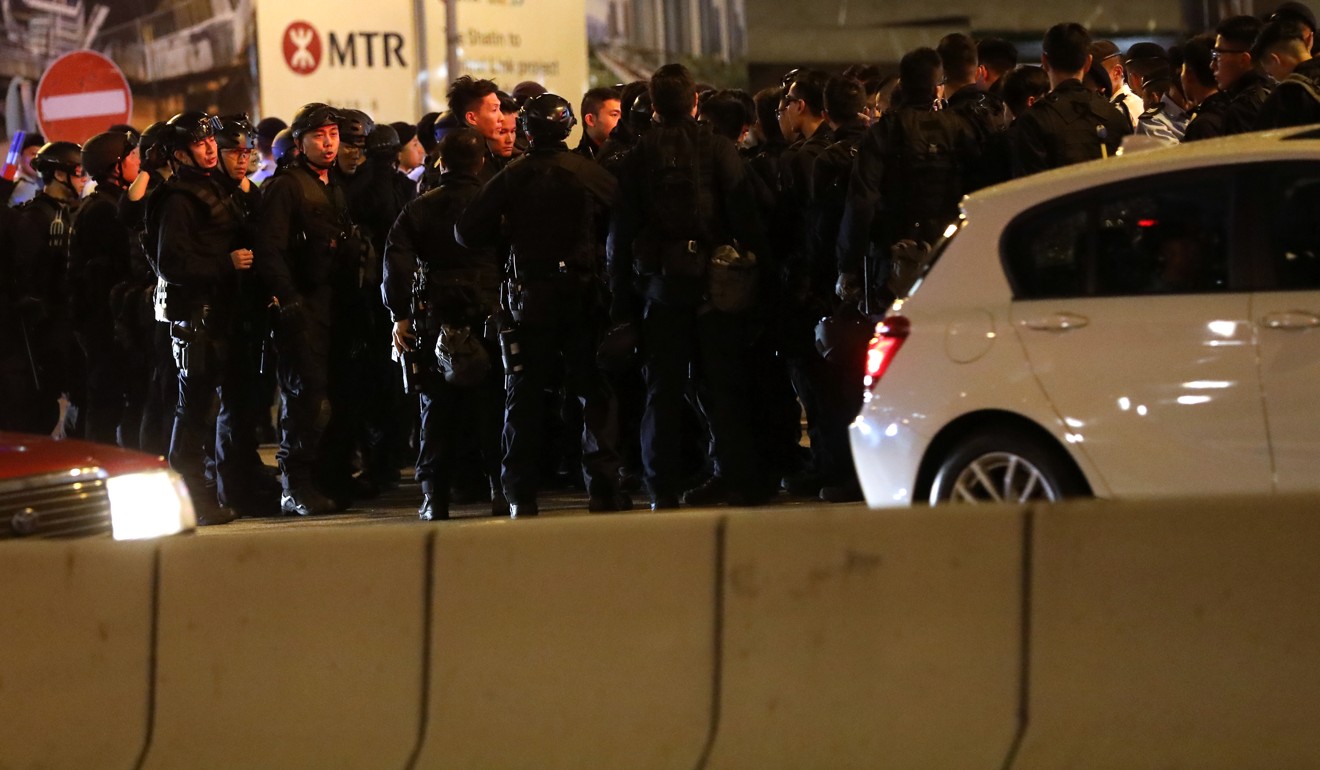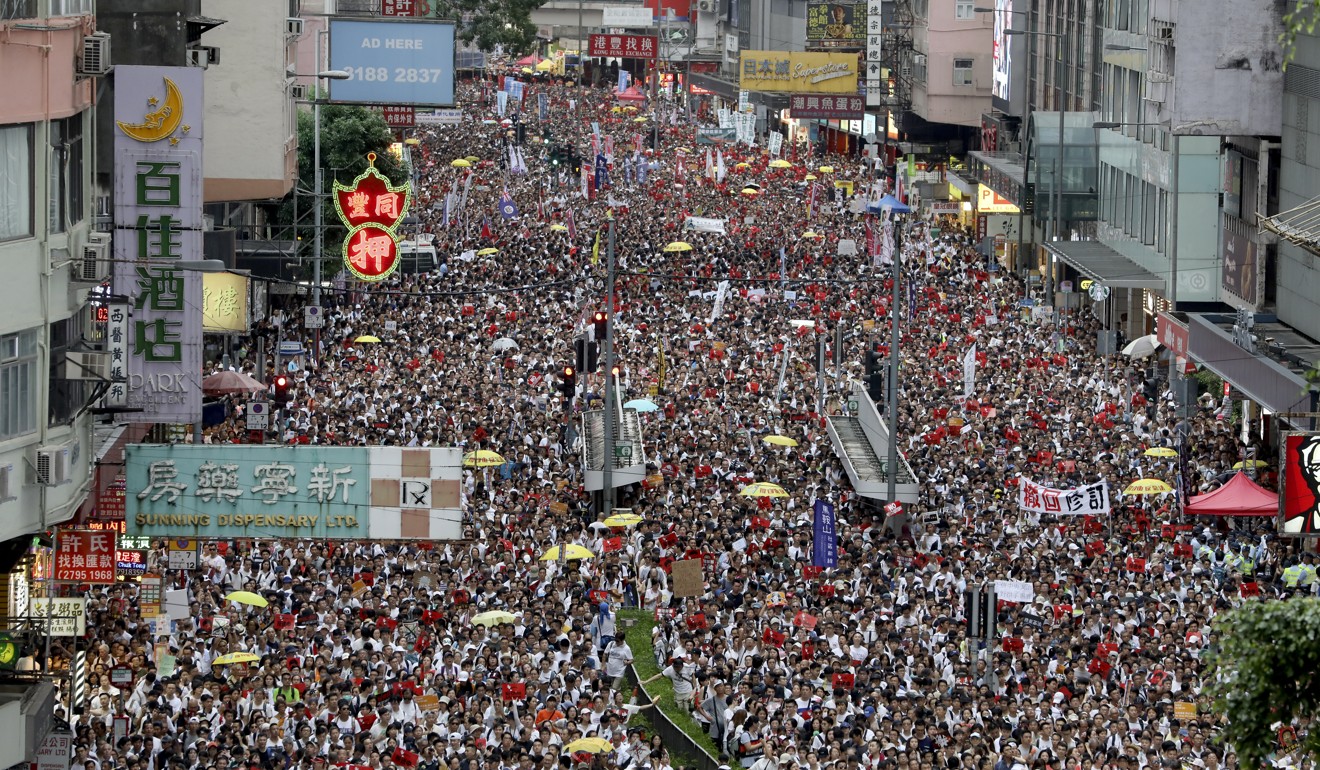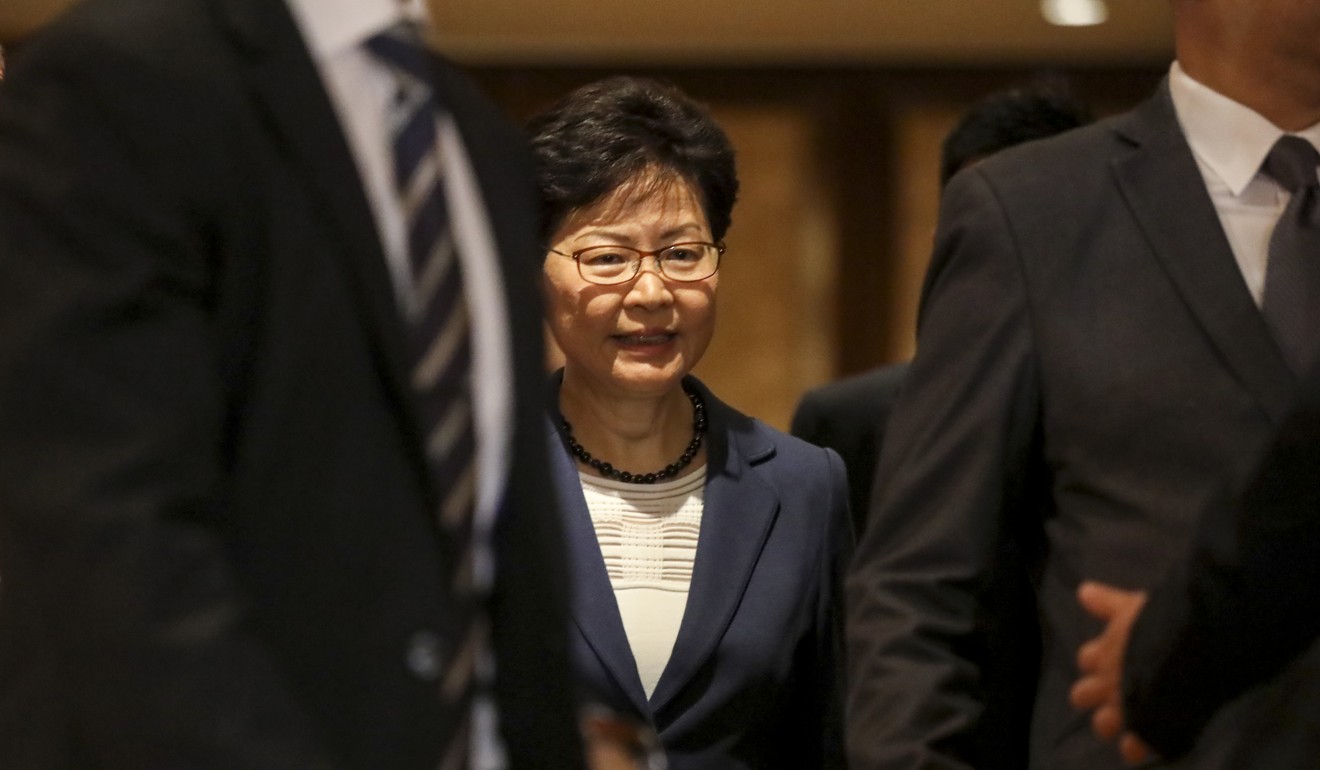
One extradition bill, hundreds of thousands of protesters: why is the Hong Kong government sticking to its guns and will the opposition relent?
- Pro-establishment legislators close ranks with government, insisting contentious legislation ought to be given a chance
- Several mainland Chinese scholars argue bill is equipped with enough safeguards and only became controversial after opposition camp and foreign politicians politicised the legislation

The Hong Kong government has made clear its controversial extradition bill would go forward, even after Sunday’s mass rally opposing it.
Political allies of Chief Executive Carrie Lam Cheng Yuet-ngor reiterated their support for the bill after the city’s leader promised to alleviate public fears by taking on suggestions from pro-government parties. Her allies said they were not worried about a backlash in the coming district council elections.
In the first of two articles, we look at why the government is sticking to its guns. In the second, we look at whether it could revive the ailing pan-democrats.

On July 1, 2003, half a million people took to the streets to oppose the Hong Kong government’s national security Article 23 legislation, fearing their civil liberties would be compromised.
Despite securing support from major pro-establishment groups, the city’s top officials decided at the time they did not have enough votes to get the bill approved in the Legislative Council.
The bill was shelved, and the pro-establishment parties that supported the legislation suffered embarrassing defeats at the district council polls held later that year, with commentators saying voters were punishing the politicians for backing a bill that threatened the city’s freedoms.
Fast forward almost 16 years; organisers said 1.03 million people marched on Sunday to oppose the government’s controversial extradition bill, which would allow suspects to be transferred to places with which the city does not have an extradition deal, including mainland China.
But far from distancing themselves from the local government, pro-establishment legislators closed ranks with the government, insisting the legislation ought to be given a chance to be implemented.
“History will not necessarily repeat itself,” said New People’s Party legislator Regina Ip Lau Suk-yee, who also sits on Lam’s cabinet, the Executive Council.
Ip stepped down as the city’s security minister after the 2003 protest.
She reiterated her support for the bill on Monday, hours after Lam vowed to allay Hongkongers’ fears by taking on board suggestions put forward by several pro-establishment parties on Sunday in the protest’s immediate aftermath.
Those included Ip’s party’s call for a pledge to provide regular reports to Legco about its implementation if the bill was passed; and the forging of more long-term agreements with as many jurisdictions as possible.
Although the opposition pan-democrats rejected those measures as meaningless, Ip argued that the initiatives would persuade more residents to support the legislation.
“It will help. There will be additional, and enhanced transparency,” she said.
Ip also stressed she was not supporting the bill reluctantly, nor was she worried about any backlash in elections, due at the end of the year for district councils and next year for Legco.
“I try to defend the bill, not just to win the votes, but to demonstrate that Hong Kong’s rule of law is not being threatened,” she said.
Ip believed once the bill was passed, residents would come to realise that only fugitives need fear the consequences.
A pro-Beijing legislator, who spoke on condition of anonymity, also believed that as long as the government stared down the dissenters and pressed on, pro-establishment parties could support the extradition bill and would not suffer at the polls.
“The government’s shelving of the bill in 2003 only confirmed voters’ impression the legislation was bad,” he said.
“This time the government is not backing down. We are confident that after it is passed, residents will see the critics’ accusations were unfounded.”
Opposition to the bill has snowballed into a political crisis for Lam’s administration as serious domestic and international concerns have surfaced over the possibility of politically motivated persecution and the lack of fair trials under mainland China’s legal system.

Li Xiaobing, an associate professor of the law school at Nankai University, in Tianjin, also believed it would do little good for the government to abort the bill at this stage.
“Legitimate calls like enhancing safeguards could be considered. But as some local and foreign political forces have made use of the issue to challenge the city’s governance, it is not a simple matter that could be solved by a withdrawal,” Li said.
“If the government backs down easily, the governance would never be back on the right track.”
But James Tien Pei-chun, honorary chairman of the pro-establishment Liberal Party, was not that optimistic.
“Pro-establishment lawmakers should assess how many of those who marched on Sunday came from their constituency, and supported them in the past … If voters’ opinion was ignored, they might refuse to support the camp in the future,” he warned.
Dr Cheung Chor-yung, a senior teaching fellow at City University’s department of public policy, questioned whether the pro-establishment camp was genuinely unfazed by the mass protest on Sunday.

“Maybe they just had to be obedient because Beijing has weighed in supporting Lam,” Cheung said.
The political scientist also doubted the measures announced by Lam on Monday would alleviate people’s worries.
Several mainland Chinese scholars argued that even without the additional measures, the current bill was equipped with enough safeguards. It only became controversial after the opposition camp and foreign politicians politicised the legislation, they said.
Former Basic Law Committee member Rao Geping, a law professor at Peking University, called on Hongkongers to trust the “dual safeguards” of chief executive and courts spelt out in the law.
“We cannot deprive the chief executive’s own judgment only because she, or he, is appointed by the central government,” Rao told the Post. “Carrie Lam earlier said clearly she has no ways to override the law just to obey Beijing’s directive.”
Rao believed many objections were only based on speculation and Hongkongers should have more faith in the judges.
He also said the bill was being politicised with debate on the legal principles deliberately obscured. The law was long overdue, he added, as extradition mechanisms with various countries were needed.
Tian Feilong, associate professor at Beihang University’s Law School in Beijing, believed Beijing would reassess the opposition power and its connection with the United States after the unexpectedly high turnout on Sunday.

“The more successful the opposition camp has been at mobilising people, the tighter the control it may face in the future from Beijing,” he said, pointing to the various trips by pan-democrats to the US which had hit a nerve in Beijing.
Late into Sunday night and early Monday morning, hundreds of protesters battled with police outside Hong Kong’s legislature and administrative headquarters, bringing a violent end to the peaceful mass rally that drew historic numbers onto the streets to oppose the government’s controversial extradition bill.
Legco president Andrew Leung Kwan-yuen said after the protests, items such as spears and an electric saw were found outside the Legco building.
The Legco Commission has asked the Legco secretariat to assess whether police help would be needed when lawmakers deliberate on the bill in the coming weeks.
But Cheung said politicians and officials should take note that many protesters involved in the battles were ordinary university students.
“Unlike in past protests, the young people involved this time were not rioters or troublemakers. They just wanted the government to listen to their concerns,” he added.
Next up: why the flagging fortunes of Hong Kong’s opposition lawmakers could be in for a revival